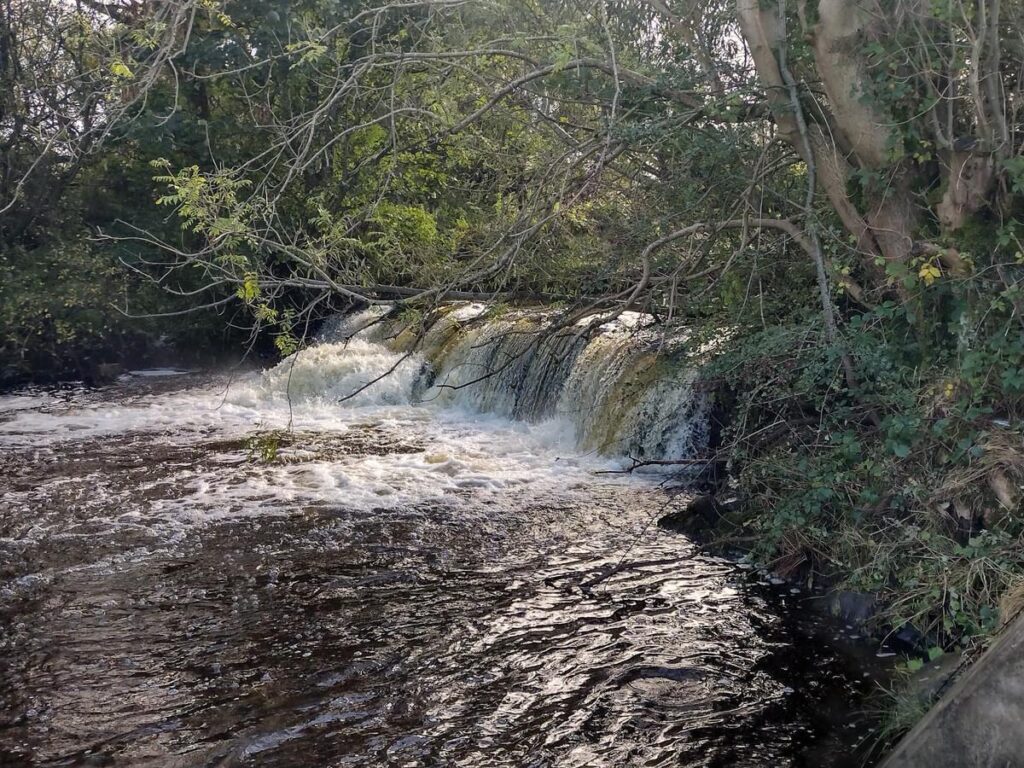We recently completed a project to remove an industrial-era barrier to migrating fish on the Levern Water. The removal of Crossmill Weir was part of a wider river restoration project along the Levern Water in Barrhead, Glasgow and will help to make the river a better environment for nature and the local community.
In addition to opening up 4km of quality spawning habitat to migratory fish like Atlantic salmon, the work at Crossmill has restored the physical condition and ecological status of the Levern Water as designated by the Scottish Environment Protection Agency (SEPA) from ‘poor’ to ‘good’. Longer term benefits include reduced flood risk downstream, increased resilience and diversity of the local ecosystem upstream and increased fish stocks for local fisheries and fishermen.
To deliver the project, a partnership was formed between ourselves at Green Action Trust, East Renfrewshire Council, and SEPA, with support from the local community and the Clyde River Foundation. We were responsible for project managing the works to completion.
Funding was provided by the Open Rivers Programme and by the Water Environment Fund, which is administered by SEPA on behalf of the Scottish Government.
To find out more about what the project has delivered and the fascinating process to remove the weir, please visit the project case study page:

Karen Sutherland, our Technical Director, said:
“It’s been fantastic for Green Action Trust to play a part in restoring the Levern Water to its pre-industrial condition, providing more habitat for salmon and improving the quality of the river. Projects like this one play a vital role in the ongoing efforts to restore habitats and improve environmental quality across the wider Central Scotland Green Network.
“It’s also wonderful to see the positive effect that the weir removal and wider river restoration project has had on interest, engagement and access to nature in the local community.”
SEPA’s Lucie Stewart, River Restoration Specialist for the Water Environment Fund, said:
“Projects like this are vital to restoring the health of Scotland’s rivers and are a testament to what can be achieved when we work together. With migratory fish now able to enjoy unimpeded access to spawning and feeding grounds in the Levern Water, we look forward to their return in the not too distant future.
“SEPA will continue to support this essential work, with the Water Environment Fund enabling more rivers to be opened up across Scotland.”

